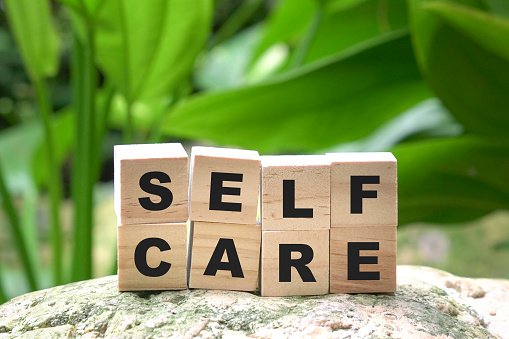Setting better Boundaries for your Self-Care
How many times have you wished you could make your family member, partner or colleague stop treating you the way they do?
So many of us think that setting boundaries are for the other person. As a therapist and a mental wellness coach, many of my clients ask me how they can get people to treat them better or how they can get others to respect their boundaries.
I tell them that they are looking at boundaries incorrectly - boundaries are for you and not for them!
Boundaries are for you!
Boundaries allow you to create the environment you need - whether mental, emotional or physical, and frees you to live your life on your terms.
When I first say this to my clients, I see their look of confusion. You see….we cannot control another person’s words or behaviour, but we can make it clear what is acceptable and what isn’t for us.
The following statement by Premptis Hemphill is so powerful, and I say this at least once a day in therapy sessions…
“Boundaries are the distance at which I can love you and me simultaneously.”
Think of boundaries as an act of self-care, allowing you to honour yourself while creating creating an environment that keeps you connected to the other person in a way that is best for you.
Your First Steps to Setting Boundaries
Here are the first steps to start setting boundaries:
Take Some Time for Yourself
We live such a fast-paced life and sometimes we don’t realize how important self-care is. When we take some time to be alone, we are able to build balance, mental and emotional stability, creativity and gives us the chance to just “be”. Making time for yourself is important to starting to create healthy boundaries.
Solitude allows you to reflect on your life and your values. The time you set aside for self-care can bring more clarity to your relationships with others, ultimately helping you better define your boundaries.
You can do this by setting a time each week and designating it as “me time”. Book it like any other appointment that you prioritize and take the time to do something that you would like to do - for example. taking a long walk by yourself.
Determine what is helpful for you and what takes away from your well-being
f you come away from an experience or a conversation feeling drained, anxious, worked-up or overwhelmed, chances are that your boundaries are being crossed. Think of these feelings as your internal alarm system, signalling to you that your mental or emotional boundaries need to be re-assessed.
Once you note this, decide what you are willing to accept and not accept. Be clear with yourself as to what can work for you and what won’t work for you.
Be very clear and concise when you share your boundaries
Openly sharing your boundaries is necessary for others to know what they are.
The more you can be clear and direct with communicating your boundaries, the easier it will be for others to respect and follow them.
While the thought of doing this can be intimidating, it is a skill that improves over time and becomes easier to do with practice, bringing you confidence and building your self-esteem.
So go ahead and communicate them clearly and concisely.
A Final Word on Self-Care and Boundaries
When we neglect our boundaries, we sacrifice our own well-being to please other people. This causes us more stress and distress and leads to resentment while damaging our relationships.
When we set clear boundaries, we are able to give ourselves the love and respect that we need and the opportunity to create deeper and more rewarding relationships with others.



